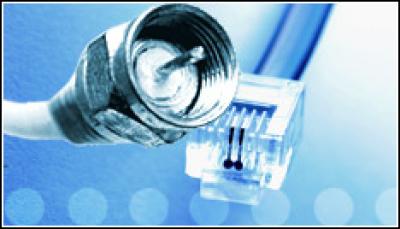Orange Hands LLU Network Back To BT

Unbundling didn’t work for Orange: the operator is handing its fixed-line network back to BT after struggling for broadband market share
Oange has turned over control of its fixed-line network in the UK to former incumbent BT, after the mobile operator struggled to retain its broadband customer base.
Orange has approximately 840,000 broadband customers, thanks to installing its own equipment in BT telephone exchanges (a process known as local loop unbundling or LLU). This investment allowed Orange to offer broadband services to roughly 65 percent of the British population, offering speeds of up to 24Mbit/s.
Orange Hands Over LLU To BT
Orange’s decision to hand control of its LLU network back to BT will essentially extend Orange’s fixed-line coverage to the entire country, as Orange will piggyback on BT’s national network for broadband services, a policy that Vodafone also employs in the UK.
Under the terms of the deal, about 61 Orange staff will be transferred to BT, which will take over Orange’s fixed-line infrastructure and integrate it into its own national network.
 Orange merged with T-Mobile UK last month and is now the leading mobile operator in the UK, with a customer base of nearly 30 million mobile customers. The BT deal means that Orange will be able to free up resources to improve its mobile offerings.
Orange merged with T-Mobile UK last month and is now the leading mobile operator in the UK, with a customer base of nearly 30 million mobile customers. The BT deal means that Orange will be able to free up resources to improve its mobile offerings.
Why Now?
Orange has made no bones about the fact that it has been struggled to retain its broadband customers, which now stand at 840,000 users, down from 977,000 this time last year.
It apparently has been reviewing its broadband operations for ten months now and had considered abandoning the market altogether. It is thought that Orange’s mobile business had been propping up its broadband activities, which apparently lost nearly £80 million last year, despite earning roughly £200 million of revenue.
Speaking to the Times newspaper, Bruno Duarte, Orange’s vice-president of strategy explained that the decision to outsource its network to BT was done to make providing broadband commercially viable.
“We are not satisfied with where we stand with broadband, as our customer base is declining and our performance is poor. But we need to remain in fixed-line broadband so decided to fundamentally change what we are doing,” Duarte told the newspaper.
Duarte blamed Orange’s problems on its ageing infrastructure. Despite Orange investing hundreds of millions of pounds installing its own equipment in local exchanges over recent years, Duarte said it would have needed to spend much more to get its network up to scratch.
Duarte said that divesting the network would allow Orange to step up its investment in improving its competitive position.
Indeed, the level of investment required to roll out a next generation fibre network in the UK has turned out to be a political issue now in the forthcoming general election. BT has already pledged to roll out fibre to 40 percent of UK homes in time for Olympics in 2012, but this would leave large swathes of rural regions in the broadband slow lane.